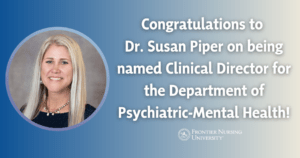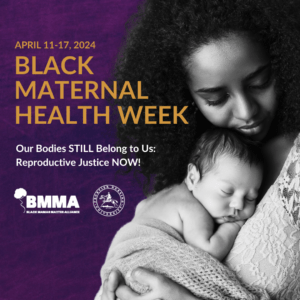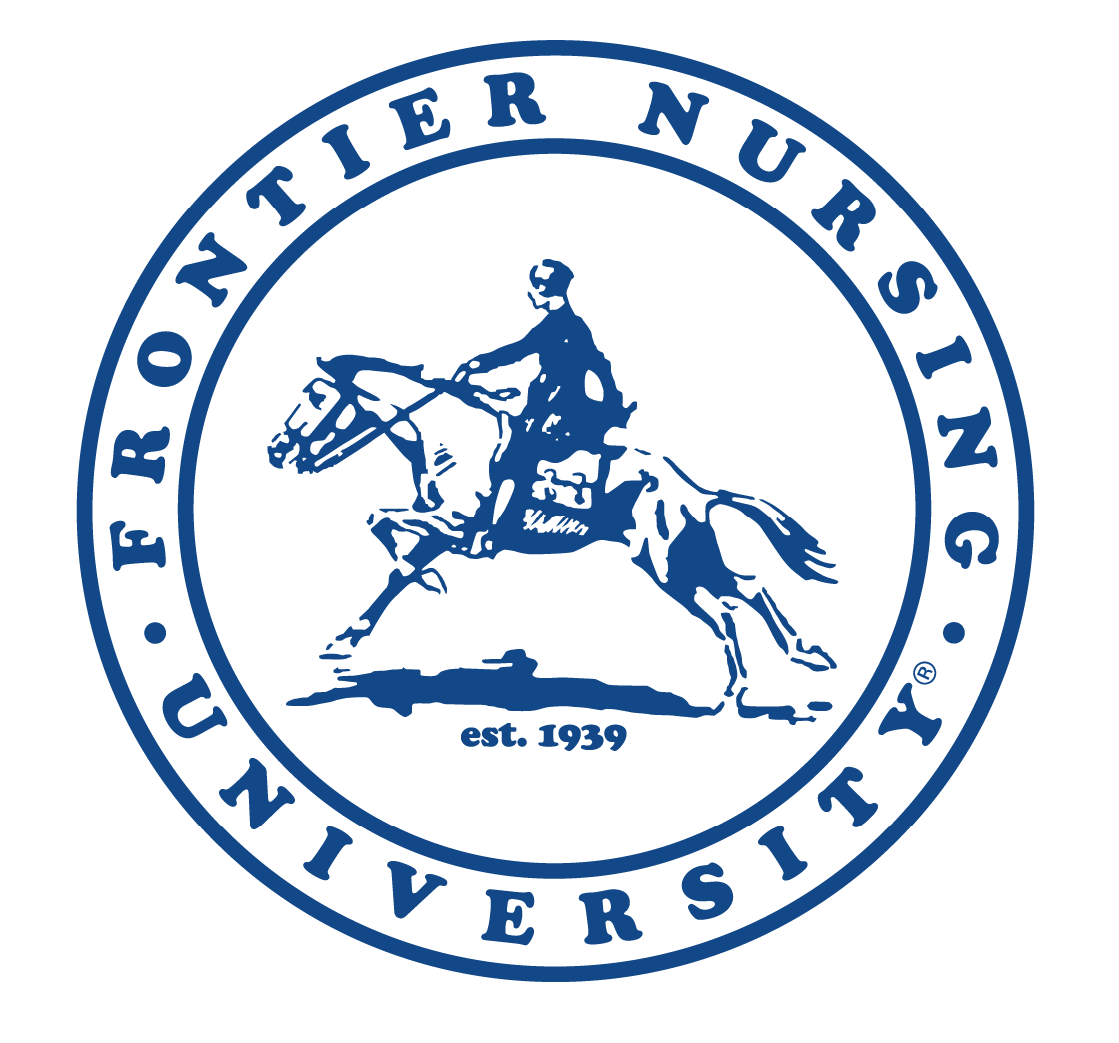 As we all learned in high school, whether it’s good or bad, reputation matters. Within the Boise VA Medical Center, it’s safe to say Frontier Nursing University has a good reputation. In recent years, four FNU graduates have been nurse practitioner residents at the medical center.
As we all learned in high school, whether it’s good or bad, reputation matters. Within the Boise VA Medical Center, it’s safe to say Frontier Nursing University has a good reputation. In recent years, four FNU graduates have been nurse practitioner residents at the medical center.
“The director of the Boise VA Medical Center nurse practitioner residency said she is consistently impressed with the FNU graduates who have come to our residency program,” said Megan Simenc, MSN, FNP-C, Class 155. “I was the third FNU graduate in the residency and one of the current residents, Elizabeth Ballweg (FNP, Class 158) is also a proud FNU alumnus. Liz and Megan Fitzmaurice (FNP, DNP, Class 20) are the reason I found the program and I owe a lot of my success to them.”
Simenc completed a one-year nurse practitioner residency in primary care at the Boise VA Medical Center in July prior to moving into her current role providing primary care and nurse practitioner residency leadership at the Boise VA Medical Center and the Caldwell VA Community Clinic.
“Thanks to the cohesive, collaborative interdisciplinary model at the VA, primary care providers like myself take on more care of complex conditions than I originally expected from my education and clinical experience,” Simenc said. “Since I work so closely with specialists at the VA, I am managing more complex conditions with the specialists’ input, and referring out less, which is a great learning experience.”
She passes that knowledge on to the current participants in the residency program. “I serve as a mentor for this year’s residents, set up didactic learning opportunities, do some teaching, and will be taking on the scheduling of specialty rotations,” Simenc said.
The Boise VA Medical Center receives patients from across Idaho and eastern Oregon, many of whom live in rural, isolated areas. According to Simenc, the majority of veterans seeking care at the Center are older white males with complex and overlapping medical conditions, including socio-economic and mental health conditions. Common challenges include low health literacy, very low income, complex comorbidities, mental health conditions, and geographic barriers to care.
Simenc relates to her patients by drawing on her own rural upbringing in the small town of Dillon, Montana. She also credits FNU for helping prepare her for the challenging patient population and the added complications brought on by the COVID-19 Pandemic.
“I think FNU attracts some of the best future nurse practitioners and our education helps us blossom into strong, thoughtful, dedicated patient advocates and independent providers,” Simenc said. “I am constantly amazed at how well I was prepared to enter the workforce as a brand new nurse practitioner, thanks to my FNU education. Not only did FNU build up my clinical knowledge, but my education taught me to look further and not discount the critically important piece of socio-economics in our delivery of healthcare.”
Understanding a patient’s perspective is an important part of connecting and communicating with them while administering care. Simenc noted that her patients have been split regarding the pandemic, most being aware of the risks and the importance of safe practices, but many are skeptical of the seriousness or even legitimacy of the pandemic. Rather than engaging in a debate or trying to convince patients they are wrong, Simenc takes a more tactful approach.
“In these situations, I try to avoid judgment and instead elicit their perspectives, their concerns, and highlight that, regardless of their beliefs or their mistrust of the science presented to them, the outcome of taking these recommended precautions is helping protect other veterans around them,” she said. “This usually goes over quite well because our veterans have a very strong sense of pride and are almost always happy to help another vet.”
Simenc said she now only sees about 25 percent of her patients in person during the pandemic, with the remainder of the appointments taking place via secure video or phone calls. Many days she works from home to limit the number of people in the clinic.
“These changes have greatly impacted residency programs like our NP residency,” she said. “We are working on ways to maximize learning opportunities for our residents by holding didactics via video, and seeking unique opportunities to still get safe, face-to-face patient care experience like working in episodic and urgent care more often.”
There are many lessons to be learned, and Simenc is hopeful they will carry over after the pandemic is over.
“This global pandemic is highlighting the critical need for our country to recognize and support our frontline and essential workers – especially our nation’s healthcare workers like nurses, cleaning services, food services, clerical staff, and primary care providers,” she said. “I hope that our nation will learn that we need to support these essential workers not only in times of crisis, but to nurture these dedicated workers in good times as well.”
Note: For more information about the Boise VA Medical Center nurse practitioner residency program, visit vaboisenpresidency.com.





 Vanessa Cameron works for Vanderbilt University Medical Center in Nursing Education & Professional Development. She is also attending George Washington University and progressing towards a PhD in Nursing with an emphasis on ableism in nursing. After becoming disabled in April 2021, Vanessa’s worldview and perspective changed, and a recognition of the ableism present within healthcare and within the culture of nursing was apparent. She has been working since that time to provide educational foundations for nurses about disability and ableism, provide support for fellow disabled nursing colleagues, and advocate for the disabled community within healthcare settings to reduce disparities.
Vanessa Cameron works for Vanderbilt University Medical Center in Nursing Education & Professional Development. She is also attending George Washington University and progressing towards a PhD in Nursing with an emphasis on ableism in nursing. After becoming disabled in April 2021, Vanessa’s worldview and perspective changed, and a recognition of the ableism present within healthcare and within the culture of nursing was apparent. She has been working since that time to provide educational foundations for nurses about disability and ableism, provide support for fellow disabled nursing colleagues, and advocate for the disabled community within healthcare settings to reduce disparities. Dr. Lucinda Canty is a certified nurse-midwife, Associate Professor of Nursing, and Director of the Seedworks Health Equity in Nursing Program at the University of Massachusetts Amherst. She earned a bachelor’s degree in nursing from Columbia University, a master’s degree from Yale University, specializing in nurse-midwifery, and a PhD from the University of Connecticut. Dr. Canty has provided reproductive health care for over 29 years. Her research interests include the prevention of maternal mortality and severe maternal morbidity, reducing racial and ethnic health disparities in reproductive health, promoting diversity in nursing, and eliminating racism in nursing and midwifery.
Dr. Lucinda Canty is a certified nurse-midwife, Associate Professor of Nursing, and Director of the Seedworks Health Equity in Nursing Program at the University of Massachusetts Amherst. She earned a bachelor’s degree in nursing from Columbia University, a master’s degree from Yale University, specializing in nurse-midwifery, and a PhD from the University of Connecticut. Dr. Canty has provided reproductive health care for over 29 years. Her research interests include the prevention of maternal mortality and severe maternal morbidity, reducing racial and ethnic health disparities in reproductive health, promoting diversity in nursing, and eliminating racism in nursing and midwifery. Dr. Lisa Meeks is a distinguished scholar and leader whose unwavering commitment to inclusivity and excellence has significantly influenced the landscape of health professions education and accessibility. She is the founder and executive director of the DocsWithDisabilities Initiative and holds appointments as an Associate Professor in the Departments of Learning Health Sciences and Family Medicine at the University of Michigan.
Dr. Lisa Meeks is a distinguished scholar and leader whose unwavering commitment to inclusivity and excellence has significantly influenced the landscape of health professions education and accessibility. She is the founder and executive director of the DocsWithDisabilities Initiative and holds appointments as an Associate Professor in the Departments of Learning Health Sciences and Family Medicine at the University of Michigan. Dr. Nikia Grayson, DNP, MSN, MPH, MA, CNM, FNP-C, FACNM (she/her) is a trailblazing force in reproductive justice, blending her expertise as a public health activist, anthropologist, and family nurse-midwife to champion the rights and health of underserved communities. Graduating with distinction from Howard University, Nikia holds a bachelor’s degree in communications and a master’s degree in public health. Her academic journey also led her to the University of Memphis, where she earned a master’s in medical anthropology, and the University of Tennessee, where she achieved both a master’s in nursing and a doctorate in nursing practice. Complementing her extensive education, she completed a post-master’s certificate in midwifery at Frontier Nursing University.
Dr. Nikia Grayson, DNP, MSN, MPH, MA, CNM, FNP-C, FACNM (she/her) is a trailblazing force in reproductive justice, blending her expertise as a public health activist, anthropologist, and family nurse-midwife to champion the rights and health of underserved communities. Graduating with distinction from Howard University, Nikia holds a bachelor’s degree in communications and a master’s degree in public health. Her academic journey also led her to the University of Memphis, where she earned a master’s in medical anthropology, and the University of Tennessee, where she achieved both a master’s in nursing and a doctorate in nursing practice. Complementing her extensive education, she completed a post-master’s certificate in midwifery at Frontier Nursing University.









 Dr. Tia Brown McNair is the Vice President in the Office of Diversity, Equity, and Student Success and Executive Director for the Truth, Racial Healing, and Transformation (TRHT) Campus Centers at the American Association of Colleges and Universities (AAC&U) in Washington, DC. She oversees both funded projects and AAC&U’s continuing programs on equity, inclusive excellence, high-impact practices, and student success. McNair directs AAC&U’s Summer Institutes on High-Impact Practices and Student Success, and TRHT Campus Centers and serves as the project director for several AAC&U initiatives, including the development of a TRHT-focused campus climate toolkit. She is the lead author of From Equity Talk to Equity Walk: Expanding Practitioner Knowledge for Racial Justice in Higher Education (January 2020) and Becoming a Student-Ready College: A New Culture of Leadership for Student Success (July 2016 and August 2022 Second edition).
Dr. Tia Brown McNair is the Vice President in the Office of Diversity, Equity, and Student Success and Executive Director for the Truth, Racial Healing, and Transformation (TRHT) Campus Centers at the American Association of Colleges and Universities (AAC&U) in Washington, DC. She oversees both funded projects and AAC&U’s continuing programs on equity, inclusive excellence, high-impact practices, and student success. McNair directs AAC&U’s Summer Institutes on High-Impact Practices and Student Success, and TRHT Campus Centers and serves as the project director for several AAC&U initiatives, including the development of a TRHT-focused campus climate toolkit. She is the lead author of From Equity Talk to Equity Walk: Expanding Practitioner Knowledge for Racial Justice in Higher Education (January 2020) and Becoming a Student-Ready College: A New Culture of Leadership for Student Success (July 2016 and August 2022 Second edition).